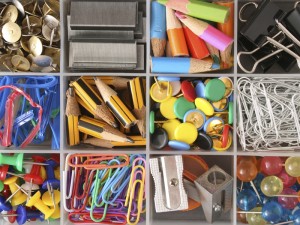 When I was a boy, my family lived in Italy, and I used to steal office supplies from my father’s study and sell them at school for money to buy candy. I stole pens, pencils, sharpeners, erasers, scotch tape, post-it notes, paper clips. I made enough money that on my way home from school I could afford at least one chocolate Kinder egg, a Duplo bar (my favorite) and some liquorices wheels.
When I was a boy, my family lived in Italy, and I used to steal office supplies from my father’s study and sell them at school for money to buy candy. I stole pens, pencils, sharpeners, erasers, scotch tape, post-it notes, paper clips. I made enough money that on my way home from school I could afford at least one chocolate Kinder egg, a Duplo bar (my favorite) and some liquorices wheels.
My father worked for the Vatican City as a liaison for a fund-raising project. But I used to think that he was an office supplier for the Vatican because he had so much wonderful office stuff around the house. He kept all of his items neatly organized inside wooden boxes labeled using little drawings he made. He drew a snail to identify a box holding rolls of scotch tape and similar items. An alligator face full of teeth for a box of staplers, staples and removers. He also had a box filled with matchbooks he had collected from around the world.
I stole so much office supplies from my dad that one day he called a family meeting. He was convinced a neighbor had been breaking into our apartment to steal from us. Things had gone missing for a while, and now was the last straw.
His bicycle had been stolen from him already three times from the apartment courtyard downstairs. Each time, the heavily-gauged chain had been cut off like a piece of string.
I used to hide my mother’s jewelry inside her own jewelry box. I would remove the little drawers and tuck the rings behind them. I did this because I wanted to save my favorite rings for a future girlfriend or wife. It wasn’t until three or four years later, when we moved to the United States, that I showed her where I had hidden her rings.
But my father never knew it was me who stole his office supplies.
One day, instead of candy, I started buying sleeves of stick-on tattoos from newspaper vendors on the street. I would cut away each tattoo so that I could sell them for a profit at school. I sold those tattoos by the dozens, making thousands and thousands of lira a week.
With the money I made, I bought more tattoos and repeated the process.
But eventually, other kids caught on to my business model, and I began having competition. Suddenly every Stefano and his twin sister was selling tattoos, cutting into my profits.
I had to expand.
 I started buying collectible stickers, too. My favorites were the Street Fighter figures in various fighting stances. Over a course of a few months, I bought and sold so many stickers thatI collected every figurine on the market. There were hundreds of them. Some vendors knew me by name because I had done so much business with them. One particular vendor made a special order for me because I came by so often.
I started buying collectible stickers, too. My favorites were the Street Fighter figures in various fighting stances. Over a course of a few months, I bought and sold so many stickers thatI collected every figurine on the market. There were hundreds of them. Some vendors knew me by name because I had done so much business with them. One particular vendor made a special order for me because I came by so often.
I was maybe seven or eight at the time.
But becoming a business man didn’t solve my stealing habits. Even when I could afford to buy just about anything a kid could want, my thieving habits grew.
My friend Walter and I would “collect” decals off of scooters and Vespas around the streets of Rome. These decals weren’t your typical flat stickers. They were padded and thick and looked great on the cover of my school notebooks.
I stole from the tobacco shop around the corner of my house. I stole from toy stores. I stole from convenient shops and book stores and any place that sold items small enough to fit inside a pocket.
Sometimes my brother was my accomplice, but he usually went overboard.
One day, our family—all seven of us—took a road trip to Pinocchio Land. My dad had a large family van we called “Mike.” Mike even had its name spray-painted on the front above the windshield. Pinocchio Land was several hours away, so we stopped at a convenient store and gas station along the highway to refuel and grab food for the rest of the road.
My younger brother, Marco, and I scurried through the aisles of toys and candy, quietly and secretly ripping open packages and stuffed whatever we could into our pockets. But Marco overstuffed. He shoved toy cars down his pants, action figures into his pockets, candy into his jacket, and other colorful childhood joys into his shirt. Every piece of him was stuffed.
And every action was caught on camera.
Before we could leave, the manager stopped us. He asked my parents to have their son empty his pockets. All of them. The man pointed only at Marco.
One by one, Marco removed each stolen item. He had grabbed enough toys and candy to fill a store shelf. The whole time, I watched, my hands fiddled with my own stolen goods in my pockets, and I thought for sure that I would be next.
But once Marco was done, and my parents apologized profusely, the manager let us go.
I can’t remember if Mamma and Papa had to pay for any of the opened packages.
From there, we drove down the highway and stopped again to have a picnic. My parents had bought chocolates and Kinder goodies from the convenient shop.
“We were going to divide all of these evenly for you five to share,” my parents said, holding handfuls of chocolates, “But because Marco was bad, you four get to eat his share.”
Marco watched us, in tears, bawling, while my three sisters and I at his portion of the candy. My lips smeared with chocolate as I watched my brother cry. Stolen toys formed bulges in my pockets as I ate.
Our stealing habits didn’t stop once we moved to America.
Any time we visited a Toys R’ Us or a K-Mart, we entered into stealth mode, and left the store with more than we had come in with.
I was ten years old when our family landed at the Pittsburgh Airport. We found a house to rent in the Pittsburgh suburbs, but spent some time in West Virginia while we waited for our furniture to arrive by boat from across the ocean.
My father’s friend, a Catholic priest who went by the name of Father Brendon, owned a wooden cabin in the hills of Littleton. In West Virginia, my father bought a station wagon with wooden paneling that could fit the entire family, and eventually we drove back to Pittsburgh to live in our new house. We had never lived in a house with a yard before. It felt like a mansion compared to the apartment we had in Rome. When we had first been shown the house by a real estate agent, the woman watched our entire family run to the window when we caught sight of squirrels running around the yard.
When we moved in, the fridge was empty and only half of our furniture had arrived.
So we went shopping.
We had supermarkets in Rome, of course, but they were typically a solid forty-five minutes drive from the apartment. Here, in Pittsburgh, we had a Giant Eagle just a few miles away. The wonders and riches of America.
My father took my brother and me around the aisles of Giant Eagle while my mother took my sisters.
Down one of the aisles, I caught sight of something that brought immediate excitement to my chest.
“Papa! Papa! Look!”
From the shelf, I grabbed a tub that had a picture of a deep fried, breaded and juicy chicken thigh on the front floating in mid air.
“It’s chicken in a bucket,” I told him. “Just like they have on the American television shows.”
Growing up in Italy, a good chunk of the television programming comes from overseas, most of which is from the States. I remembered watching Family Matters in Italian as a boy and being intrigued by episodes when the father brought home huge buckets of fried chicken to eat for dinner. Sometimes, the whole family ate together sitting on the couch watching TV.
What a wonderful sight.
It had always been a childhood dream of mine to eat fried chicken from a bucket while watching TV on the couch.
This was it. I had found the chicken bucket in a grocery store.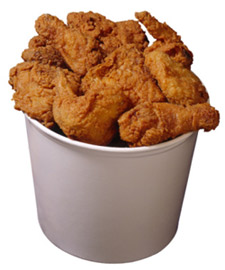
On the shelf, there was a little bucket and big one, and because we were such a big family, I wanted my dad to buy the big one.
My father was unsure. He held the weight of the tub in his hands, tried to read the labels, but our English was so poor that he wasn’t able to determine much from the script around the container. All he had to go by was the delicious picture on the front and his own son’s excitement.
I was so convinced that chicken was inside that he decided to place the tub in the shopping cart. We finished our groceries, and packed the car.
My parents said that we had been so well-behaved in the store, that they would reward us with a visit to Toys R’ Us.
“Only to look,” my parents said. “We’re not buying anything.”
We all agreed, and as my brother and I “looked,” we also stuffed our pockets with small toys we wanted.
We arrived home to eat dinner. By this point, I had probably convinced the entire family that we would treat ourselves to fried chicken in a bucket. I stood by my father in the kitchen as he popped open the plastic lid from the tub. He peeled away the aluminum seal. I held my breath in anticipation.
He looked inside.
And his face was filled with misery and disappointment.
The tub was filled with a white paste.
Cooking lard.
It was Crisco.
And for a moment, I was so convinced that chicken had to be inside that I asked him to dig deeper in the white lard just to make sure there weren’t any chicken wings inside.
“Not even one?” I asked.
He didn’t respond. He had just blown a good handful of dollars on the largest bucket of Crisco the store carried. This was money we couldn’t afford to waste. So for a month straight, my father added Crisco to everything he ate. Pasta. Salad. Meat. It didn’t matter. Everything had a spoonful of Crisco on the plate. Most of the time he added it cold, not realizing that he could use it to cook. And of course, my brother and I were of no help. Any time he told us to add Crisco to our plate of food, we refused.
I don’t know whether he eventually finished the whole tub by himself, or simply threw it away. My father was already overweight with a hefty potbelly that pooched out and stretched his button-up shirts. He had a white beard (which he still does), and small children often mistook him for Santa Clause in disguise.
My mother had been a “Tongue” teacher in Rome, a word that also means “Language” in Italian. So, in other words, she taught Italian at the same elementary school where I went as a boy.
When we moved to the States, I don’t remember her having a job for a while. My father taught as a philosophy professor at Duquesne University, barely knowing any English.
At school, I knew so little English that I carried note cards with phrases in order to communicate. I had to repeat fifth grade because in Italy I had been advanced a grade ahead because I could write and recognize words using a typewriter by age four-and-a-half. Now I lived in a world where I didn’t even know the language. I managed to communicate in broken phrases.
Girls thought I was weird and boys made fun of my bowl cut. Eventually, I made a few friends, and each year I had a new crush on a new girl who wanted nothing to do with me.
In my first year, I made a few gaffes with language, once asking for a shit of paper instead of a sheet of paper, or asking for a rubber to correct a mistake instead of an eraser.
Boys made fun of me for having a girl’s name. I was eleven years old and weighed maybe ten or twenty pounds less than most boys my age. I was scrawny but I hated the idea of being bullied. I hated the thought of being a victim. So one day I decided to memorize a phrase in case I should ever get picked on again.
One day at school, I was waiting in line to drink from a water fountain, and two boys were standing around with a girl who was cute. The one boy, named Matt, had always been friendly toward me, but the other boy decided he would show off for the girl.
He made a comment about my name, calling me a girl, taunting me with, “Michelle! Mee-shell!”
So here it was. The opportunity I had prepared for.
I stopped drinking from the fountain. Wiped my lips dry. Took a step up to him. The top of my head probably reached his chin, but I looked him in the eyes and he looked down at me with a smug smile.
So I said, “You call me a girl one more time, I bash your head against wall and drink the blood.”
We stared at one another for an infinite moment. Matt (the other boy) and the girl looked terrified of me. They believed me. They actually believed I was actually going to drink this bully’s blood.
After that, I didn’t get picked on again at school for having a girl’s name.
Within a few years, I learned enough English that I could carry a conversation. Most of us learned English with the help of an ESL tutor at school but also by watching a lot of In Living Color on TV. Within a few more years, our English as kids was better than our parents. And my mom maybe resented that because we were often impatient with our parents for their lack of understanding.
My brother and I, and sometimes even our sisters, stole at least another multi-dozen times. My parents wondered why we were so excited to go to Toys R’ Us even when they didn’t buy us anything.
But they realized it when Marco, yet again, got caught with a jacket full of action figures and shiny cars and the store manager had him unveil his stolen booty one item at a time in front of my parents. My sisters and I watched him, our bodies standing in the threshold of the automatic doors, half-in-half-out of the store. We shook our heads in disapproval. How could you get caught again?
Meanwhile, the store manager never made mention of the things that were in my own pockets.
My thieving habits settled after a while. As we grew older, we stopped stealing childish things that we desired. Except, one time, after my wife and I bought our first house, we went to Lowes to buy a lawnmower, new laminate flooring and a bunch of home supplies. When we got home, I checked the receipt and saw the cashier had forgotten to scan the lawn mower.
I could have gone back to pay for it.
It was still loaded in the car.
I could have gone back.
But instead, I filed the receipt away in our filing cabinet, feeling like I had gotten away with yet another theft.
 Michel Sauret – Award-Winning Army Journalist | Independent Author Award-Winning Army Journalist, Independent Author
Michel Sauret – Award-Winning Army Journalist | Independent Author Award-Winning Army Journalist, Independent Author
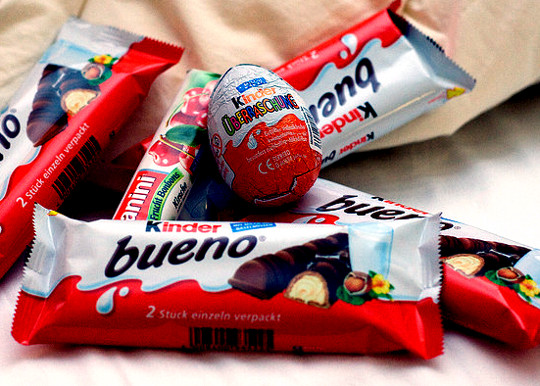

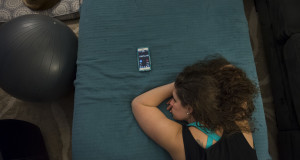
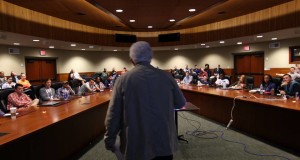

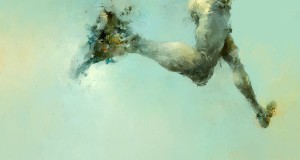

I knew your name wasn’t common in the US but never thought you were from Italy. This is an excellent piece of memory and from the rest that I’ve read seems to me you could write a novelized memoir one day.
It was a great article, it takes courage to be this open and sincere. It shows your struggle and how you look at the past. I hope you have reconciled that as a mistaken part of your childhood and leave theft behind.